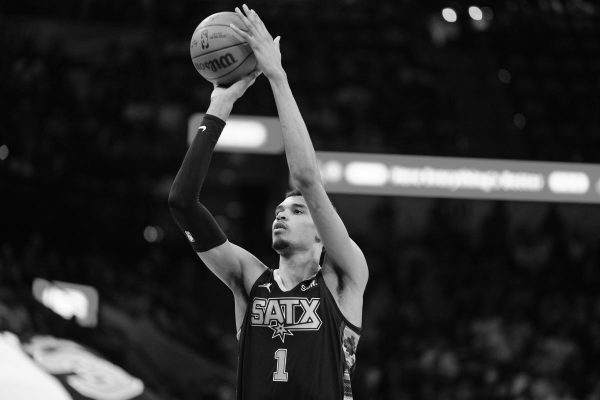Son Heung-min Weighs in on England’s Race Debate
If you are familiar with my previous sports columns, then you are well aware that I am a huge fan of Tottenham Hotspur winger Son Heung-min — in spite of my die-hard allegiance to Arsenal FC. My affinity for Son is controversial, to say the least, but makes sense given my own South Korean identity.
As a Korean-American viewer, it is exciting to watch a Korean athlete succeed on the pitch. But in some ways, his success is equally as disheartening due to the negative — and racist — attention it receives.
On January 14, Tottenham launched an investigation after a fan tweeted that other Tottenham fans had acted “hideous[ly]” during a match, directing racist comments and chants toward their very own Korean winger. Nearly a year before that, Millwall FC fans were investigated for chanting “DVD” and “He’s selling three for a fiver” at Son during a game between the two clubs, in reference to the stereotype that Asians go door-to-door selling cheap, bootleg copies of movies. The chants were in reaction to Son’s hat trick in that match.
At an April 8 press conference, Son was asked about the racism he has experienced since moving to London. He explained that he was in England to play soccer and felt it best to ignore the racism being directed toward him when he performs on the pitch. He also explained that other players of color in the English Premier League should feel they can rise against racism together.
Son’s responses left me feeling a bit uneasy. After all, it was only last December that a Tottenham fan threw a banana peel at French-Gabonese Arsenal striker Pierre-Emerick Aubameyang. Earlier this season, West Ham fans yelled anti-Muslim abuse at Liverpool striker Mohamed Salah, who was later targeted by Chelsea fans shouting that the Egyptian national was a “bomber” and “terrorist.” Southampton fans chanted about the Holocaust during a match against Tottenham, a club with a historically large fanbase of Jewish Londoners.
Can this aggressive and constant discrimination really be ignored? In November, the soccer anti-discrimination organization Kick It Out stated that there was an 11 percent increase in reported discriminatory abuse this Premier League season compared to last. With racism seemingly on the rise, the latter part of Son’s statement — his reference to players of color banding together to combat abuse — seems far more useful than any notions of simply brushing it off.
Raheem Sterling, the 24-year-old English striker for Manchester City, has taken to social media to speak out publicly against racism. He has posted sobering examples of how the media fuels racist thinking in the way they describe white and non-white players, has called for the English Football Association to take action when Black English players were subject to monkey chants during an international match in Montenegro, and has become the face of English players’ campaign against racism. I would like to think that the conversation around abuse in professional soccer is becoming more frequent because of players like Sterling, who are speaking up after years of being silenced.
In combination with his prowess on the pitch, Sterling was publicly recognized for his efforts to combat discrimination when he won the Footballer of the Year Award last week.
But even with the media attention and recognition, the 11 percent increase reported by Kick It Out is impossible to ignore. I can only imagine how many other instances of racism have gone unreported and are not reflected in that figure.
In other words, this battle seems unfruitful and I don’t believe that discrimination in soccer will ever be completely dismantled. However, if players of color cannot advocate for themselves with some kind of result — and clubs cannot ban or fine everyone responsible for acts of discrimination — then what other available options to decrease racist incidences exist?
The way I imagine Son’s suggestion that players of color should band together is as follows: A player of color on the pitch is being harassed by his own fans, as was the case with Son Heung-min. Other teammates of color come to his aid; for example, Dele Alli and Danny Rose, two Black Tottenham players. I would like to think the fans would recognize that their actions are harmful after seeing a group of their favorite players reacting negatively to their abuse.
However, some fans who shout racial abuse at their own players might not consider players like Son, Alli, or Rose as their favorite players on the team. Rather, they probably adore their white counterparts like Harry Kane or Christian Eriksen. As a result, the group effort to combat racism is lost on the perpetrators unless the whole team, regardless of ethnic background or nationality, collectively and publicly disapproves of the abuse targeted toward their teammates.
The Premier League launched their No Room for Racism campaign a little over a month ago, but I don’t anticipate the treatment of players of color improving through this effort alone. I encourage all individual team members, coaches, and members of management to publicly hold each and every fan accountable to further the conversation about racism, instead of simply addressing individual perpetrators. Only then can I foresee a potential improvement in stadium etiquette and, maybe, a realization of the magnitude of these overt forms of discrimination. Unfortunately, though, racism is obviously bigger than sports and will persist on the pitch for as long as it exists off the pitch. With this generation of players of color bringing these issues to light, perhaps the most we can do is hope that the next generation will be even more empowered.



